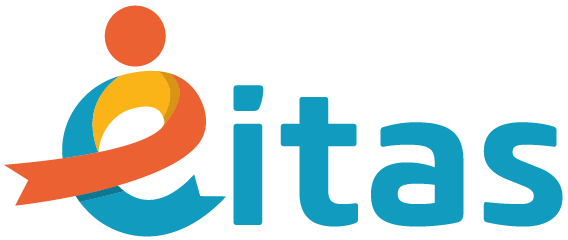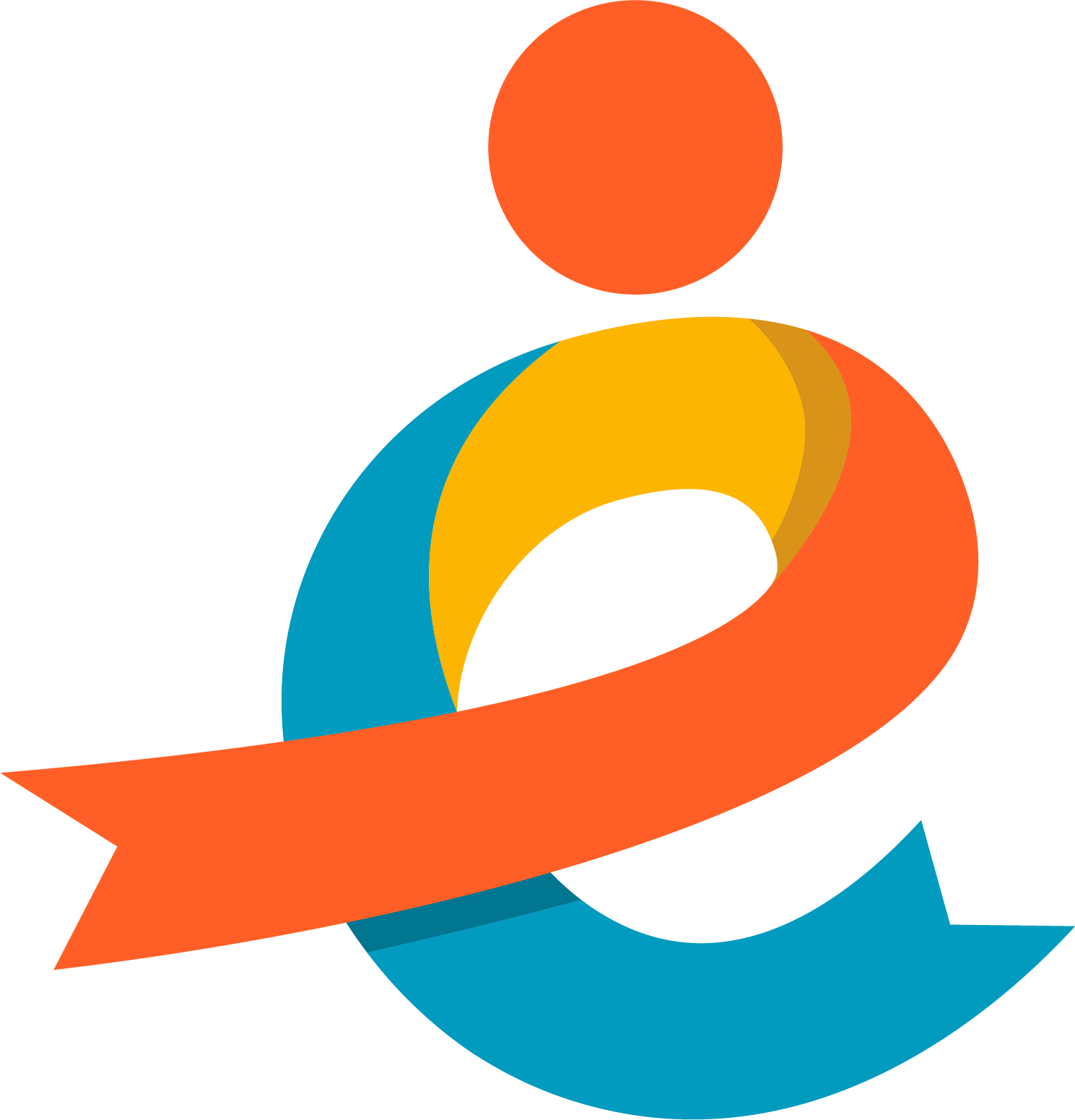Empowering Unsung Heroes: How Eitas Supports I/DD Caregivers
At eitas, we are dedicated to supporting individuals with intellectual and developmental disabilities (I/DD). As we lead efforts towards creating supportive, inclusive communities for individuals with I/DD, we think it’s important to also acknowledge the role and importance of I/DD caregivers.
These caregivers, often family members or close relatives, shoulder immense responsibilities that extend far beyond typical caregiving roles. They are often unsung heroes, advocating fiercely and ensuring their loved ones with I/DD receive the support and opportunities they deserve. As such, they are part of the community we serve, and we are committed to recognizing their challenges and providing the resources and support systems that caregivers need. Here, we share a few challenges typically faced by I/DD caregivers— fully aware that there are more! We also offer three ways eitas is here to meet and help ease these burdens on I/DD caretakers.
Caregiver challenges
Navigating bureaucratic systems
One of the most significant challenges caregivers encounter is navigating the labyrinth of services and supports needed for their loved ones. Even critically essential services such as tapping into Medicaid benefits can be incredibly challenging. From understanding how the system works, to figuring out and proving eligibility, to completing and submitting necessary paperwork, this is a daunting process that often falls to family caregivers of individuals. After that, there are processes for securing specialized educational programs, healthcare, in-home care and community resources. Ultimately, caregivers often find themselves in the role of advocates, tirelessly learning and mastering complex bureaucratic systems to ensure their family members receive the best possible care.
Knowledge and resource gaps
Caregivers often come across gaps in knowledge, which causes a cascading scramble for resources and advice. This could be about day-to-day caregiving techniques, first aid, accessible options for recreational activities or even shortlists of providers or employers that are community-vetted for being inclusive and equitable. Many caregivers find it hard to get reliable information about services, care techniques and legal rights. This makes it difficult for them to give the best care and can leave them feeling overwhelmed and alone.
Emotional and physical toll
The emotional and physical toll of caregiving cannot be overstated. Providing continuous care, managing behavioral concerns and coping with the uncertainties of an I/DD diagnosis can be incredibly stressful. Caregivers frequently experience anxiety and burnout, compounded by the constant vigilance required to ensure their loved one's safety and well-being. This relentless dedication can lead to chronic sleep deprivation and health challenges for the caregivers themselves.
Financial strain
Financial strain is another significant hurdle. The costs of medical care, therapies, adaptive equipment and home modifications can be overwhelming. Many caregivers must reduce their work hours or leave their jobs entirely to provide full-time care, resulting in financial instability and long-term economic challenges.
Social isolation
Social isolation is a common experience among caregivers. The demanding nature of their role often limits opportunities for social engagement and leisure activities. Feelings of loneliness and isolation can intensify the emotional burden, making the caregiving journey even more challenging.
Eitas can support caregivers of individuals with Intellectual and Developmental Disabilities (I/DD) in three impactful ways.
3 ways eitas can support caregivers
Eitas offers a variety of services that could help caregivers cope with the challenges and demands of caregiving.
Information and Advocacy
Eitas provides robust support in the realm of information and advocacy to help caregivers understand their rights and the rights of their loved ones. We assist with navigating public benefit programs and legal issues by connecting caregivers with local, state and federal programs that offer financial support, as well as assisting in the application process to reduce the administrative burden. Our support includes:
Assisting with Applications: We help individuals complete applications for Medicaid, Social Security, food stamps and SB40 funding requests to meet various needs.
Connecting to Resources: We link people to both disability and non-disability-related resources for employment, community living, relationships and recreation.
Support Groups and Organizations: We connect individuals and families to support groups, disability-specific groups, family organizations and family support groups.
Support Hotlines: Access to expert advice and crisis intervention services to assist caregivers in urgent situations.
Transportation Assistance: We assist with completing transportation requests for eitas and KCATA transportation programs, ensuring access to essential services and activities.
2. Support Coordinator Program
Our Support Coordinators play a crucial role in easing the burden on families and caregivers. They help individuals with developmental disabilities and their families identify their vision for a life fully lived and provide essential information about available supports and services. While eitas Support Coordinators do not directly provide caregiving supports, they assist in linking you to people or organizations that do. Key aspects of the Support Coordinator program include:
Needs Assessment and Planning: Helping families identify their needs and planning a meaningful life in the community.
Resource Sharing: Connecting families to formal services funded by state and federal programs, as well as informal community resources like family, friends, co-workers and technology.
Coordination and Advocacy: Organizing team meetings, facilitating the planning process, advocating for the individual’s needs and ensuring all informal resources are utilized.
3. Training
Eitas offers training programs and resources to help caregivers better understand and manage the complexities of caring for individuals with I/DD. Free to Jackson County residents, these programs include:
Workshops and Seminars: These will cover topics such as Gentle Teaching, communication strategies and health care needs specific to I/DD.
CPR/First Aid Training: We help caregivers prepare for basic interventions and the day-to-day by offering training for CPR/First Aid and medication administration. Additionally, if families are self-directing services, the staff they hire can come to eitas to receive training.
Care for caregivers
Caregivers of individuals with I/DD need to take care of themselves as well as their loved ones! If you’re a caregiver, self-care might seem unachievable with everything you have going on in your life. And yet, self-care can reduce stress, improve well-being and enhance quality of life. This will positively impact your caregiving duties.
Some of the ways that caregivers of individuals with I/DD can cope and find support are:
Seek professional help, such as counseling, therapy or medication, if you experience mental health issues or substance abuse.
Join a support group, online or in-person, where you can share your experiences, feelings and tips with other caregivers who understand your situation.
Use respite care, which is a temporary break from caregiving, provided by a trained staff or volunteer at home or in a facility.
Apply for financial assistance, such as government benefits, tax credits or grants, that can help you cover some of the costs of caregiving.
Learn more about I/DD, such as the causes, symptoms, treatments and outcomes, from reliable sources, such as the CDC, the National Institute of Child Health and Human Development (NICHD) or the American Association on Intellectual and Developmental Disabilities (AAIDD).
Advocate for your loved ones and yourselves by expressing your needs, rights and opinions to healthcare providers, educators, employers, policymakers or community members.
Caregivers of Jackson County individuals with I/DD, please know you’re not alone. We’re here to help you navigate life for your loved ones. Even if we don’t have the exact service you need, we are here to help you through your search for the right answers. We’re here to partner with you so that you, too, can have a healthy, fully lived life.


